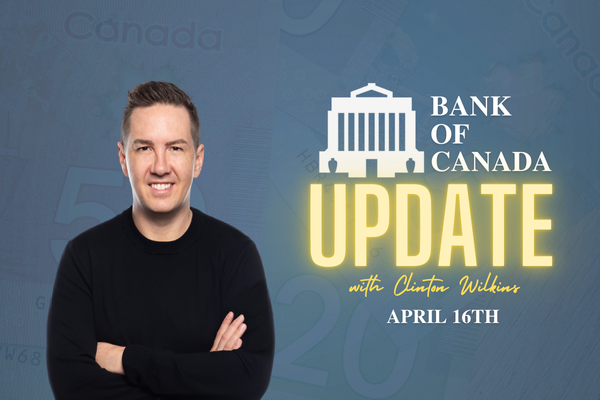On 95.7 News Radio, Clinton and Todd discussed the Yukon's government's new first-time home buyer program, offering low-interest loans to cover up to half of down payments while highlighting similar programs in Nova Scotia and New Brunswick.
CTV Morning Live: Financial Literacy Month – November 5, 2020
CTV Morning Live: Financial Literacy Month
Clinton meets up with Ana from CTV Morning Live to talk about Halifax’s real estate and financial literacy month!
Don’t feel like watching the video? Check out the transcript below. CTV Morning Live: Financial Literacy Month
Transcript:
It’s Financial Literacy Month!
Ana: [00:00:00] So November is, of course, Financial Literacy Month, and we have Clinton Wilkins here, he is amazing. He is a senior mortgage adviser. So he is going to be able to answer all those questions because I know people have questions. The market has been hot. People are wondering what should they do? So let’s get into it. So what exactly is Financial Literacy Month like? What should we know?
Clinton: [00:00:21] Well, it’s November and I think 2020 has been a challenging year for so many people. And, you know, specifically here in Halifax and Atlantic Canada, it’s been so busy in terms of real estate and mortgage. But bring it back to November and Financial Literacy Month. You know, I think it’s a great time to really look at your finances. You know, going into the holidays can be a challenging time and going into 2021. We want to make sure that all our customers really are in the best financial shape possible. I think it really comes down to when you’re buying a home, it’s the biggest purchase of your life and getting a mortgage is the biggest debt. During Financial Literacy Month, we’re really talking about income, assets and credit. And how does it really impact you?
Ana: [00:01:01] Because you’re actually going to be doing a talk just on this, which is it’s so nice. So what are some of the questions people ask you? What are the top ones?
Where should consumers start?
Clinton: [00:01:08] Well, we usually get a lot of questions about income, know a lot of questions around self-employment. There are so many nuances. And I think that’s really what makes mortgage professionals so important, especially during these times. There are so many differences from lender to lender. And, you know, a lot of customers are asking us about credit. I would say that’s probably the number one question that we get asked. You know, I think a lot of consumers just kind of go along.
They assume that they have good credit and no one really monitors it. But there are so many great solutions. There are free credit monitoring apps out there from Borrowell and from Credit Karma. I think that’s a great place to start. And, you know, when we go through things like pre-approvals, we really do look at the credit. And, you know, sometimes there are challenges. You know other people have had challenges in the past and sometimes there are errors in the credit bureau. But, oh, we’re coming to an unbiased, more professional like myself or someone in your area. We can really help you make sure you’re prepared to when you’re making an offer and a home, you know you know, you’re secure.
Ana: [00:02:02] Ok, let’s say they go and meet with you and they’re just not there yet. Do you come across that often?
You should start with a plan
Clinton: [00:02:09] You know what? I love making a plan. And I think, OK, that’s so important. And sometimes the plan is improving credit, but oftentimes the plan is figuring out what you can afford and how do you save for a down payment. So there are lots of solutions for down payments. You know, there are gifted oftentimes the bank of mum and dad.
Great solution as we know, but save down payments, RRSP Savings Accounts TFSA is our great solution for down payments. But there are also other solutions out there. There are programs for a borrowed down payment. So we can certainly talk about some of those solutions. OK, and when we go through that preapproval process, talking about the income, the credit and the assets and figuring out what you can afford, we can figure out how much skin in the game you need to have to get into that.
Ana: [00:02:54] Can I ask you about a down payment before we wrap things up? Because I feel like this is always a question like how much should you be putting down.
Clinton: [00:03:00] Well, the minimum down payment in Canada, Canada’s five percent.
Clinton: [00:03:03] So any homes up to the one million dollar mark, the minimum down payment is five percent on the first five hundred and then ten percent anything above five hundred thousand. So now in Halifax, our average house price is in the mid three hundred. So the majority of our clients, you know, if they’re first time home buyers, are putting down that five percent.
Understand your down payment
Clinton: [00:03:21] But any consumers that might have access to a little bit more money if they don’t want to go through the insurance with a Canadian mortgage and housing corporation, that they need to put down a minimum of 20 percent. . So, you know, the down payment is certainly a little bit higher if you want to avoid that insurance. You know, there are lots of solutions out there for self-employed people. I really get that question a lot just because more and more Canadians are becoming self-employed every day. And, you know, there are certain programs out there that we can use the income that they have on paper. And there’s also some stated income, you know, solutions. So we can certainly go through all those.
Ana: [00:03:54] And for the first time, homeowners, there are programs available to which, yeah,
Clinton: [00:03:58] They’re nice, great programs, specifically borrowing from the ASP.
Clinton: [00:04:02] So the home buyers plan, each borrower can take up to thirty-five thousand RRSP twice a year, then they have fifteen years. Put the money back in that RRSP. So that’s a great solution. And many borrowers have RRSP programs for their work. So it’s really a great opportunity to get you into that first home clinic.
Start with an unbiased mortgage professional
Ana: [00:04:18] I could talk to you all day. My goodness, I’m going, I’m looking to buy a home come to the New Year, so that’s really exciting. I know 2021. Yeah well because you know 2020 hasn’t been fun let me tell you. So 2021 is something to look forward to and I’m excited to come and chat with you. So for those who want more information, I know where to find you. Where can they find you?
Clinton: [00:04:35] I think the first step is really visiting us online at TeamClinton.ca. You know, we help consumers all over the country. We have lots of military clients. We’ve moved all over and certainly check this out.
Ana: [00:04:45] Ok, well, congrats on all the success. Thank you for helping us out. There are so many questions we need to answer, and you’re just the guy for it.
Ana: [00:04:51] So I appreciate it.
Clinton: [00:04:52] Thanks for having me, Ana.
Looking for more information about changes in the market, or other mortgage application advice? Feel free to contact us!


